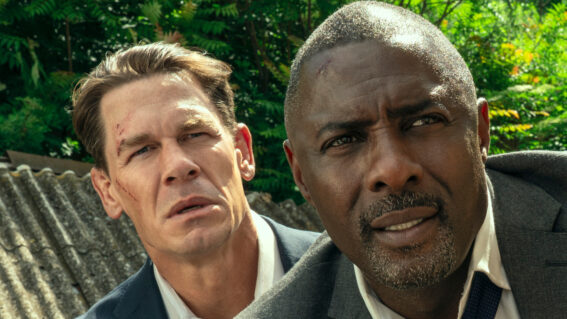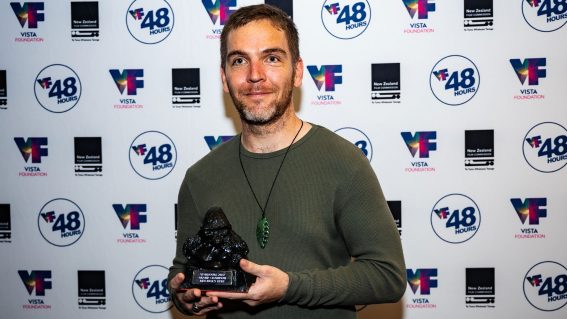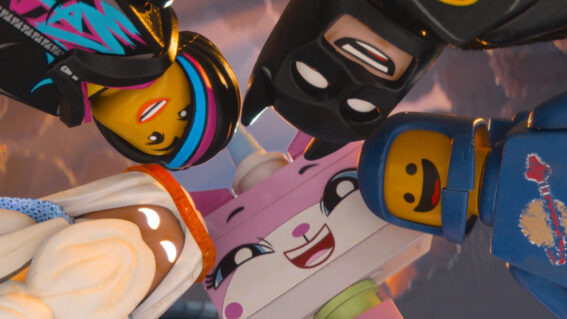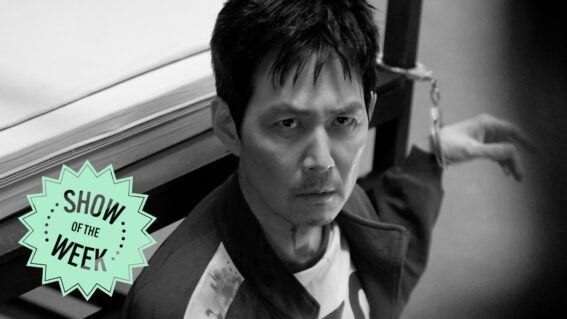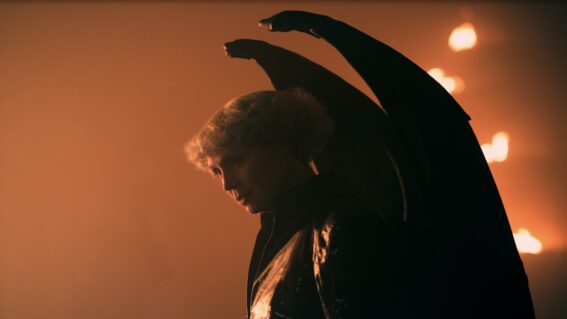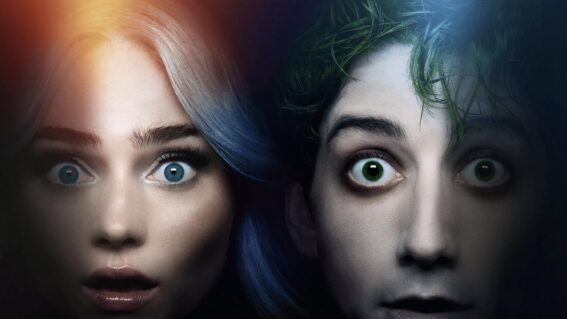Ever tried writing a movie? I did…
There’s that one friend who ignorantly announces to everyone their unrealistic creative aspirations. They’re young, they’re ambitious and, most of the time, they haven’t got a Goddamn clue of what they’re doing. You probably know at least one of these people – the novel writer who has been stuck on Chapter Three for half a […]
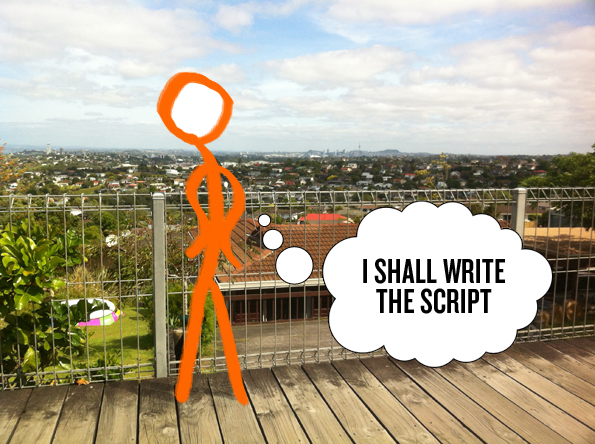
There’s that one friend who ignorantly announces to everyone their unrealistic creative aspirations. They’re young, they’re ambitious and, most of the time, they haven’t got a Goddamn clue of what they’re doing. You probably know at least one of these people – the novel writer who has been stuck on Chapter Three for half a decade or the comic artist who got to panel six of their Harry Potter Firefly crossover fan-fic before realising “Shit, this is kinda hard.”
Well, I didn’t know anyone like that, because I was that person.
I had some minor successes (and major failures) writing short scripts in my late teens which fuelled my ambitions to write better, grander stories for the big screen. I would tell everyone – my parents, my brother, my pals – of all the different feature-length scripts I was going to write. All I had to do was sit down and type for a few hours – how hard could that be? Well, to only my surprise, none of those projects came to fruition, crushed under the weight of the three colossal forces that restrain any 18-year-old male:


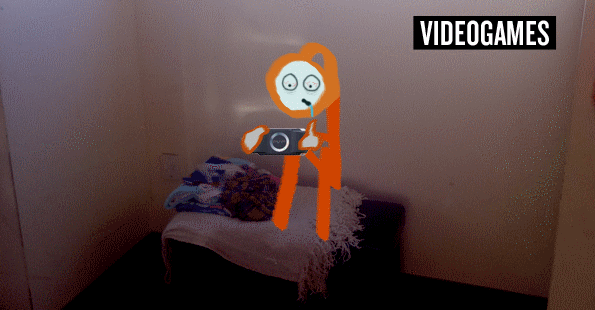
When presented with the big-boy decision, I chose not to pursue screenwriting on a tertiary level. Instead, I pursued the one subject that would present me with even fewer employment opportunities: philosophy. Had it not been for Flicks, I’d be standing outside right now applying my BA as a bronzed busker.
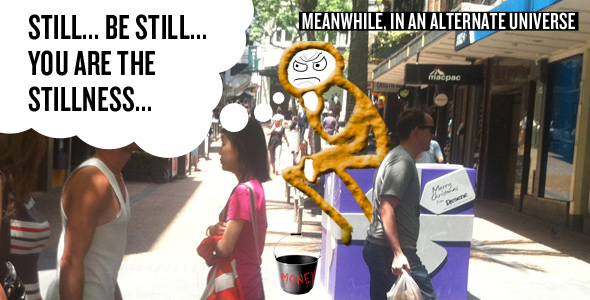
At the cigarette end of my education, I had only one paper to do in my last semester. This left me with a tremendous amount of time on my hands within a six month period, where I was forced to make a harrowing decision: conquer Super Mario Galaxy 2 or actually write a damn screenplay.
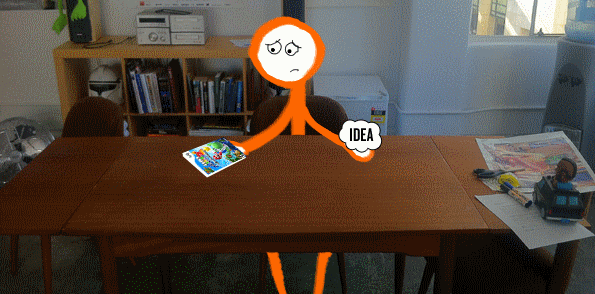
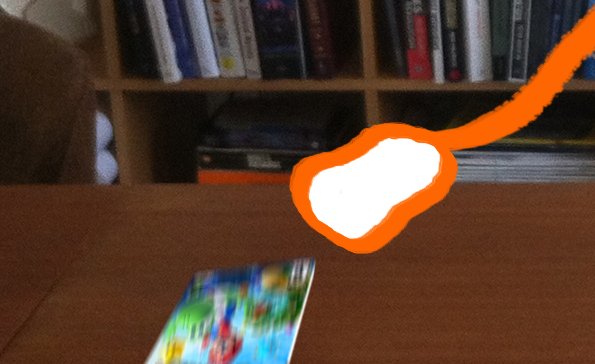

Such vast amounts of free time did not come easily to young adults, so this was likely to be my one and only shot at writing a full screenplay. I had been gifted with the fortune of convenient circumstance, and it was an opportunity I could not squander.
Okay, so I still ended up clocking Super Mario Galaxy 2 (twice), but that game’s a bloody masterpiece.
I also had to apply the right frame of mind, which involved two things:
1) Writing at least two revisions.
I had to rise past my first-draft mentality, and this line was the motivational boot-up-my-ass I needed:
“The first draft of anything is shit.” – Ernest Hemingway
It’s such a simple and elegant quote that presented me with the optimism I needed to plough through the first and toughest draft – no matter how amateurish it turned out. It also framed my lazy young mind to thinking that a first draft would never be good enough.
2) Not telling anyone about the script until AFTER I had written a full draft.
The issue with telling people about the stories I had yet to write was their reinforcing reactions. Whether it was genuine or from a polite sense of obligation, their purported enthusiasm felt like I had already achieved something – an unearned reward. And when I’m already feeling rewarded, what else is their left to do?
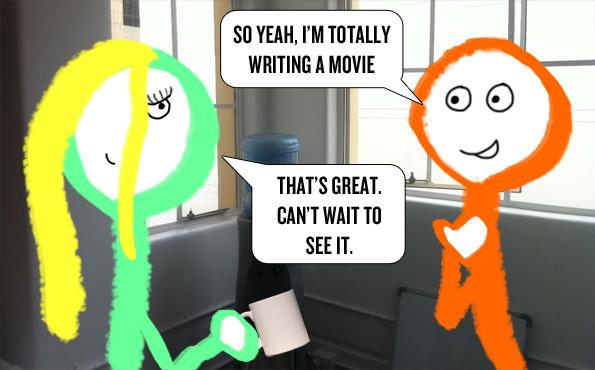
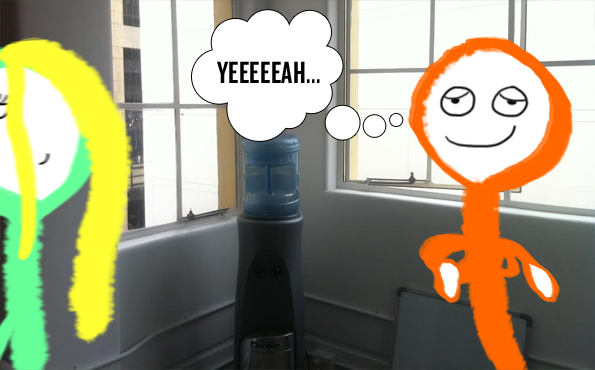
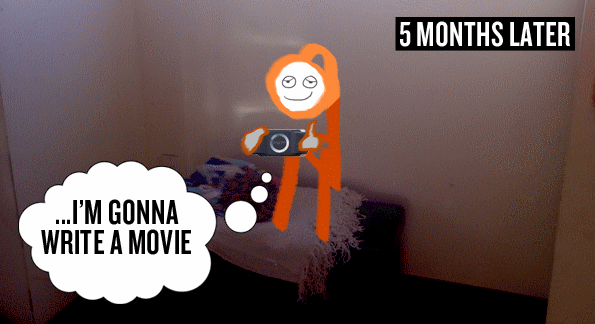
With those guidelines in place, I started to conceptualise stories, absent of any proper screen-writing knowledge. I was never concerned with whether or not the script would actually be made into a film, meaning my ideas weren’t limited to a set budget or mainstream ideas. Thus, I could have chosen to write about anything – a dance film, a sci-fi space opera, Utu Rua: Te Wheke’s Re-revenge. As I continually argued with myself over what story to tell, a peculiar concept emerged – a story reflective of my own weaknesses and instabilities.
At the age of writing this screenplay, I was heavily plagued with identity issues, personal insecurities and a general sense of overwhelming loneliness – not exactly uncommon ordeals but they did render me into puddles of pathetic misery that I kept behind a thick social veil. Bouts of self-loathing have been commonplace for me since childhood, so I was very familiar with the themes and ideas associated with it.
They were never matters I wanted to pollute my social life with (and none I would detail extensively here). Of course, the fact that I even HAD a social life contradicted many issues I had with myself. Nevertheless, my paradoxical problems were the perfect petrol for a piece of writing – something that would later prove to hold therapeutic properties.
I was also riding on an Inception high at the time, so I was into the whole trippy, introspective mind shit.
The premise to the script, entitled ‘Figment Gabriel’, is so laughable I’m kind of embarrassed to share it with you:
Deeply introverted typist Gabriel orders the world around him by creating and conversing with figment versions of himself – primarily the person he thinks he is verses the person he wants to be. His life is shaken by the introduction of expressive young Maori woman/manic pixie dream girl Nui. Her sudden disappearance sends Gabriel on a confronting identity crisis as the figment versions of himself start to revolt and multiply – including a figment version of Nui.
I completed a basic outline within a few days and began the first draft, completely ignorant of proper screenwriting format. After a gruelling month, I wrote 120 pages. The quality of the draft was not surprising.
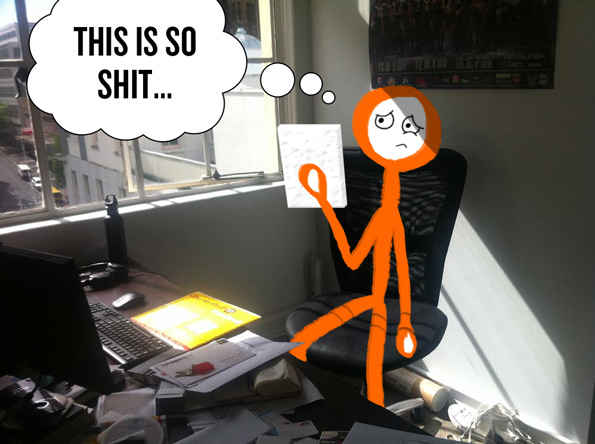
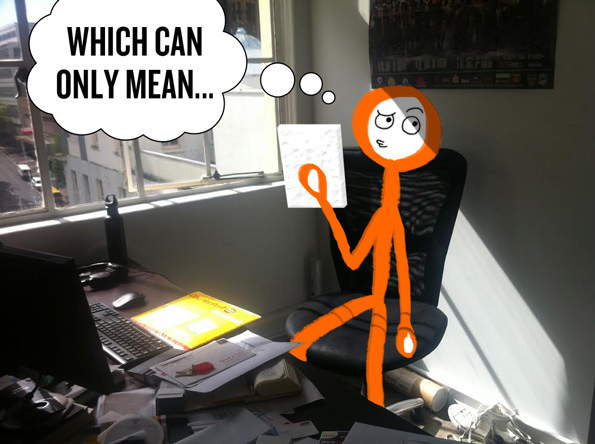
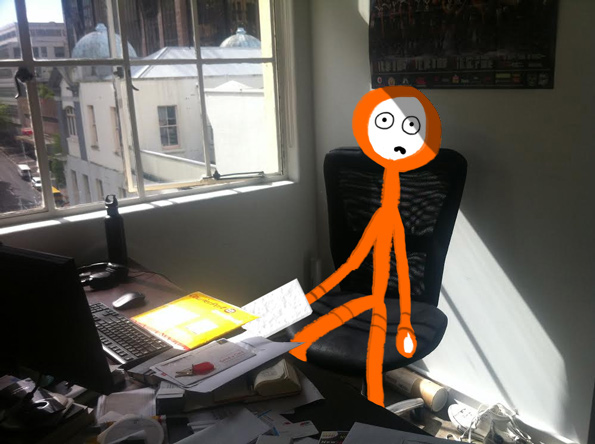

The draft was riddled with problems and things that I loathed about it, but that only motivated me to improve it. Being able to identify the problems I had with it – character inconsistencies, thematic vagueness, poor plotting choices – meant that I could find solutions, and the idea of a revised version of ‘Figment Gabriel’ actually being good became a possibility.
I became a sponge demon, soaking up every puddle of free time I had and pouring it onto this script, completing a revision within a mere week. It was an invigorating experience, joyous even, and I couldn’t quite put my finger on why I was so immersed in the revising process. But I didn’t have time to ponder that – the energy of inspiration passed through my veins and onto the keyboard with the speed and efficiency of a hyperactive coffee bean.
This was before I even drank coffee. Now I’m dependent on that cursed elixir.
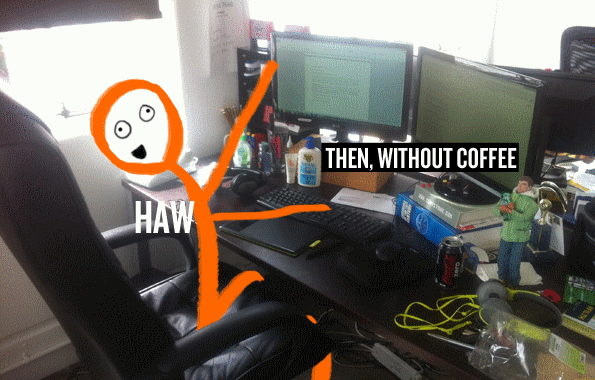
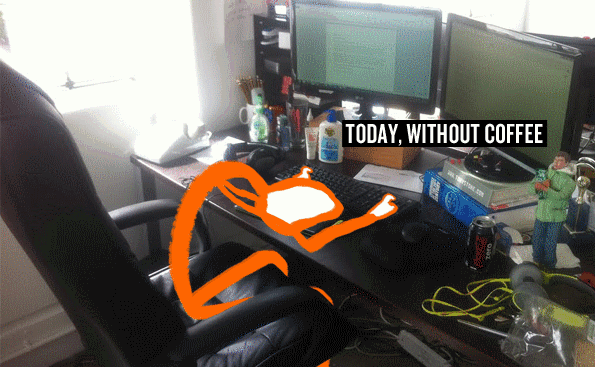
With the first revision pulsating in my hands, I had the confidence of showing people what I thought was a pretty decent – yet still amateur – screenplay. I got the thumbs up from my always-supportive dad and a few of my close friends, but in order to get the relentless criticisms I needed, I had to go to one source: complete strangers.
I found them on TriggerStreet, a social writing site where users review each other’s scripts, novels, short stories, what-have-you. The reviews didn’t hold back either:
“As a reader, I wanted to care about Gabriel. But the story is as untrustworthy as he is.”
“Needs quite a bit of work.”
“The main thing that is holding this script back is the structuring and the formatting.”
I can’t say I wasn’t expecting it; the criticism was vitally needed but difficult to absorb.
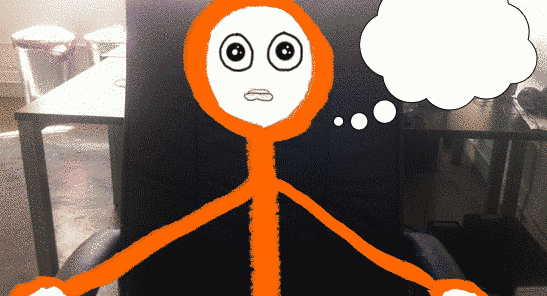
Despite the glimpses of positivity from the many comments I received, it was clear my first revision was far from an acceptable piece of writing. Having devoted so much of my time and given so much of myself to this script, it was a gut-punch to realise how much work still needed to be done – and a stab-in-the-face to my youthfully naive expectation of it being “simple” or “easy”. It was intimidating, and I contemplated giving up. I wasn’t sure if it would ever be good enough.
This was the ultimate test of my conviction: Was I a wuss or was I a wolf? Was I to spend the remaining time I had trying to clean up this mess or leave it to the squatters to shit all over? It was tempting to walk away from my goal and instead choose to wallow in the familiar comfort of underachievement, clocking Super Mario Galaxy 2 for a third time with a nice cold funnel of Heineken.
But screw that. I’m a fuckin’ wolf.
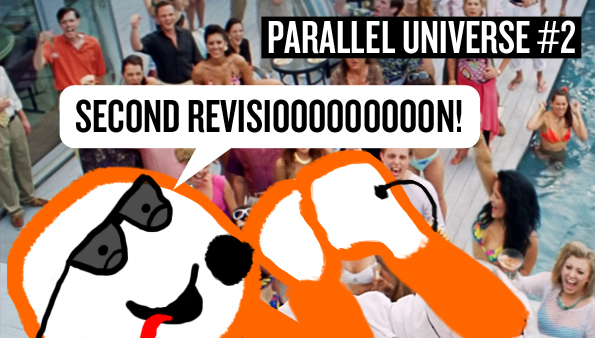
I put that shit through the creative grinder, making massive overhauls in order to tighten everything that was pointed out by the TriggerStreet community. Assimilating the golden advice gifted to me by far superior writers and their wealth of experience, ‘Figment Gabriel’ was looking like a totally different beast. New themes were introduced, plot deviations were refined and characters were either expanded or retracted.
Weeks of work forged the second revision, ready to be fed to the well-meaning critical lions on TriggerStreet. ‘Figment Gabriel’ had changed significantly from its initial conception, and as it turned out, it was for the better.
“I liked Figment Gabriel a lot. It is a psych drama, similar in feel to such films as Memento, Videodrome and Mulholland Drive.”
“I must admit, the first 20 pages or so had me feeling “another one of those” scripts. But as we moved along and the story line became more evident I began to identify with the main character and his plight. I have a feeling that the writer has a background in cognitive awareness (psychology). If not, my hat is off to him either way.”
“This was a nicely structured screenplay telling a simple yet oddly complicated little story. Very well done.”
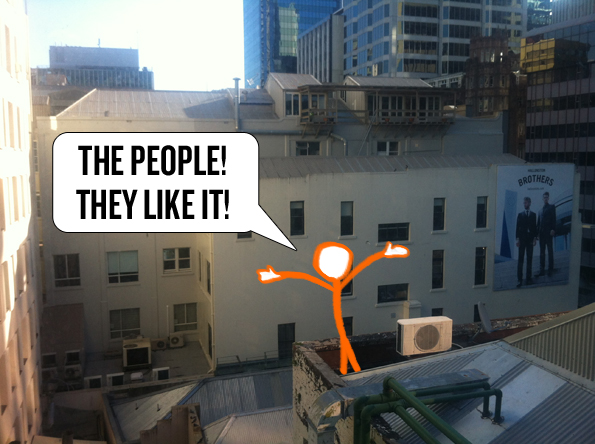
I have felt few highs that have matched the levels of intoxicating endorphins that came with the adulation.
I played with the idea of going beyond a second revision and fine-tuning it, but felt at peace with what I had achieved. Given the fact that I was treating this as a mere hobby, I thought I had earned the right to call it quits.
Also, writing a feature-length screenplay is FUCKING HARD! Seriously, it’s stupendously hard! The hardness of such a feat is granite-level, and is really the simple moral of this story.
Almost a year later, I was contacted by a member of TriggerStreet who hunted me down on Facebook (thanks to my very distinctive last name). Turns out, he was a producer and offered me an option contract for it. After making sure that he was a legitimate human, I signed.
Even if that screenplay never sees the screen, it was worth writing it. Just like Gabriel, I’ve lingered around multiple versions of myself for as long as I’ve known: the coward, the judgemental, the naïve fool. With that script, I poured all my insecurities onto the page – revising not only the words I had written, but also the issues I had with myself (through Gabriel) and finding a solution to them. More importantly, I wasn’t able to do it alone, for a fresh perspective brought to light the more problematic ordeals I was blind to. I revised the script as much as I revised myself, turning me into the writer-cartoonist-thing I am today.
And I can revise my own figments too.






